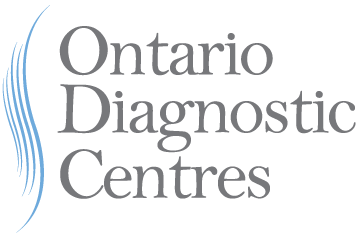Medical imaging has come a long way ahead, thanks to the rapid proliferation in technology. With the aid of diagnostic services, it becomes all that easy to confirm, assess and document the course of many diseases and response to treatment.
Several imaging examinations can emerge as your safest bet, with the Nuclear Medicine Scan being one of the popular ones. It has been recommended by doctors and performed by a team of professionals in the shape of technologists for about 50 years now.
Rest assured, the importance of these scans cannot be simply overlooked. They play a vital role in detecting the emergence of many diseases including the most deadly ones like cancer.
And if you are under this apprehension that a scan is not safe, this information is a complete fallacy. Experts have successfully employed this technique in the past and will continue to do so in the future.
In simpler words: the modality of a nuclear scan along with various other diagnostic services has indisputably emerged as a savior for so many patients out there.
Now Coming To The Heart Of The Topic, What Exactly Is A Nuclear Medicine Scan?
It is a scan that principally utilizes small amounts of radiation with the intent to generate pictures of tissues, bones, and organs inside the body. Be it for checking the functioning of the liver, bones or heart, a nuclear medicine scan is something that most doctors rely heavily upon.
For accomplishing this examination, a small dose of radiopharmaceutical is injected that collects in certain areas of the body. With the help of special cameras, many images are taken that help the medical team diagnose and treat cancer and a plethora of other illnesses.
Nuclear scans are also known by two other names: nuclear imaging and radionuclide imaging. So, the next time when your treating doctor is making use of these terms, remember they are essentially talking about a nuclear scan only.
How It Works And What To Expect
Most scans take around an hour or so. But you need to present early to the examination centre as healthcare workers prepare you for the imaging.
And as already stated before, small amounts of radiation are employed along with the use of a special camera to take the images of the inside! The patient will likely be asked to lie down on a scanning table and the camera will continue to take the pictures.
It is imperative to highlight here that before the scan you will be asked to remove all jewellery and metal that could interfere with the outcomes. So, it’s better to leave them back in your space. Additionally, the staff at the examination centre will also ask to wear a hospital gown. But is not a rule of thumb as in some cases you can continue with the test by wearing your clothes.
Technicians conducting this examination usually possess years of experience. In other words: you are in safe hands and need not worry at any point.
And as the camera is working, you might be asked to change positions to get images from different angles. The final report is prepared by a specialized doctor also known as a radiologist who further passes the information to the treating doctor.
Why Do You Need A Nuclear Medicine Scan?
A nuclear medicine scan can be extremely useful for cancer as they aid to show the prevalence of tumors and can readily track their spreading. This modality is also hailed to check how well the ongoing treatment is proceeding.
Apart from cancer, doctors make use of this scan to check for heart diseases, digestive illnesses, gland and hormone problems, and also several types of neurological disorders like Alzheimer’s, epilepsy, Parkinson’s and others.
Frequently Asked Questions
Q) Will I Be Radioactive After The Scan Is Performed?
A) The short answer to this question is: yes. However, a nuclear medicine scan usually involves a small number of radiotracers and you will not be radioactive within a day.
Q) Will You Experience Any Side Effects After The Scan?
A) The probability of enduring any kind of side effects is usually quite rare. And even if you realize an adverse reaction, it will usually be mild and pass quickly. Additionally, there is no medical treatment required for the same.
Q) Are Nuclear Medicine Scans Safe?
A) Nuclear medicine scans have been employed by doctors for a very long time. They are very safe.
Q) Do These Scans Hurt?
A radioactive material needs to be injected into a vein that may cause local pain for about 5 seconds. Apart from this, nuclear imaging won’t result in any other kind of trouble for you.
Q) What If I Am Claustrophobic?
A) If you are claustrophobic, it should essentially be in the knowledge of the treating doctor, technologist and radiologist. You might be given anti-anxiety medication on the day of the examination.
Q) How Long Does The Complete Procedure Take?
A) The duration of the procedure varies. After booking the appointment, you can clarify from the scheduler.
To Conclude
If you have been advised of this scan, it is suggested to take the services from a reliable imaging centre. Someone, with a team of highly-experienced professionals who will assure accurate results!
To make your search easy, get connected with Ontario Diagnostic Centres. All our technologists are registered with CMRITO.

